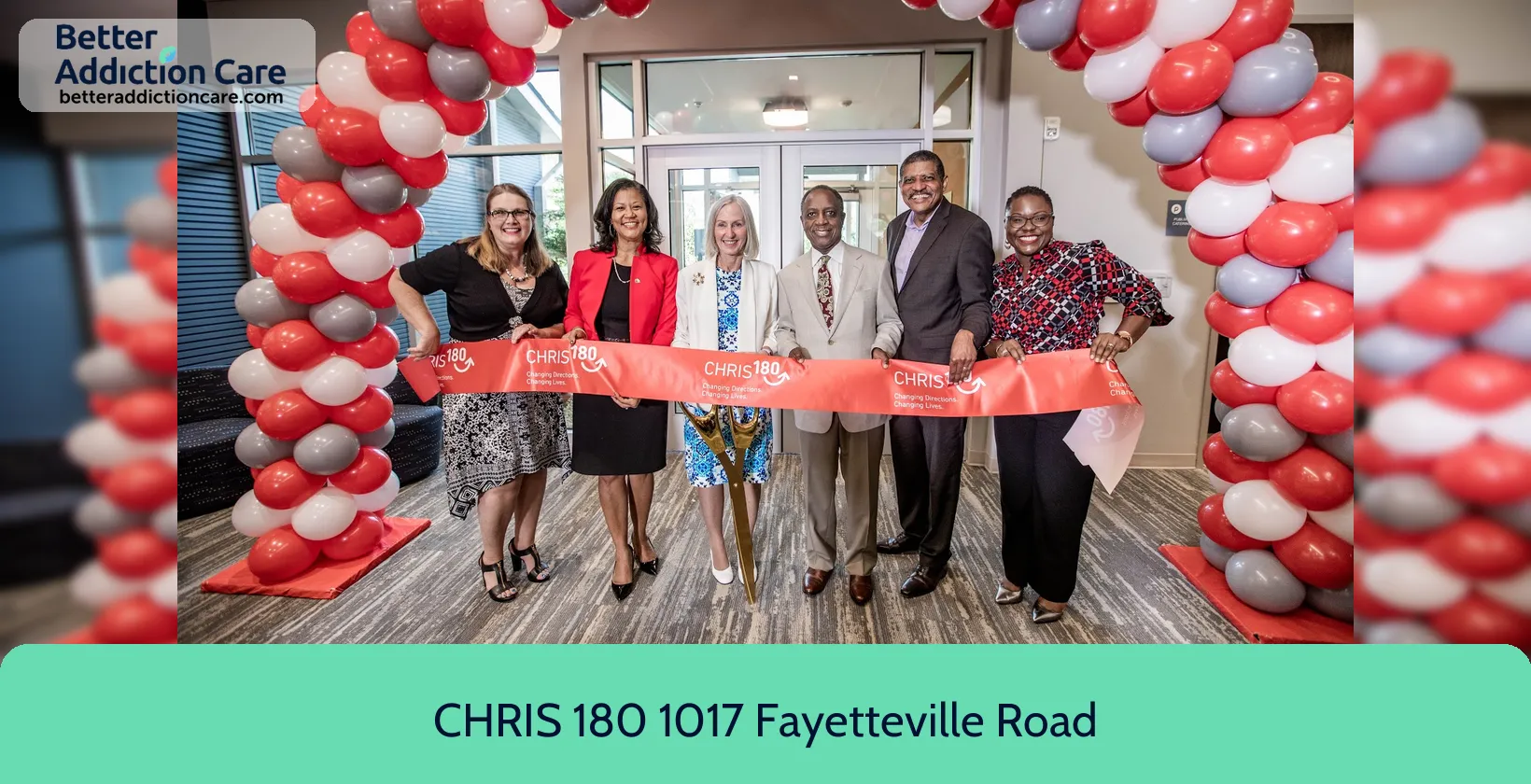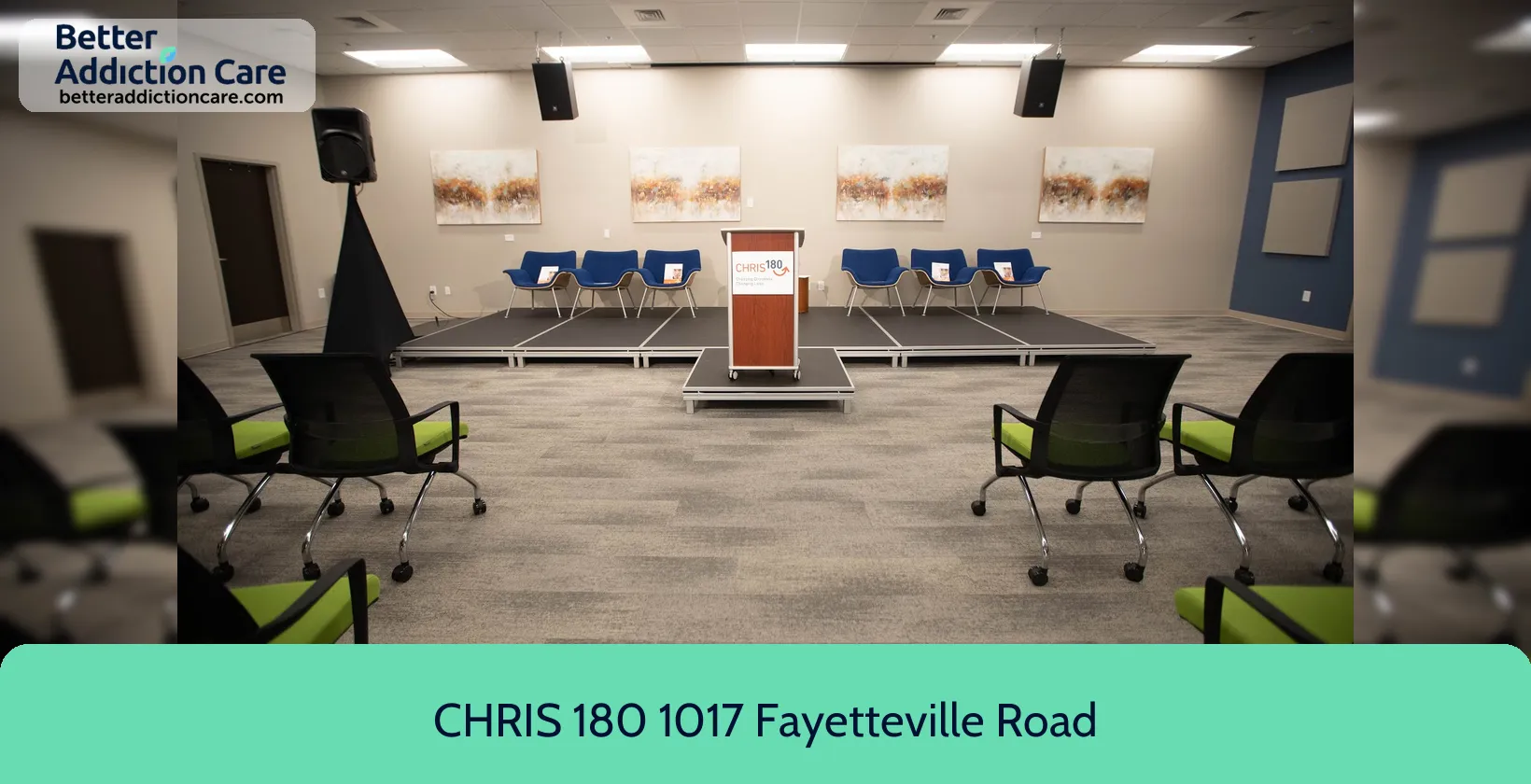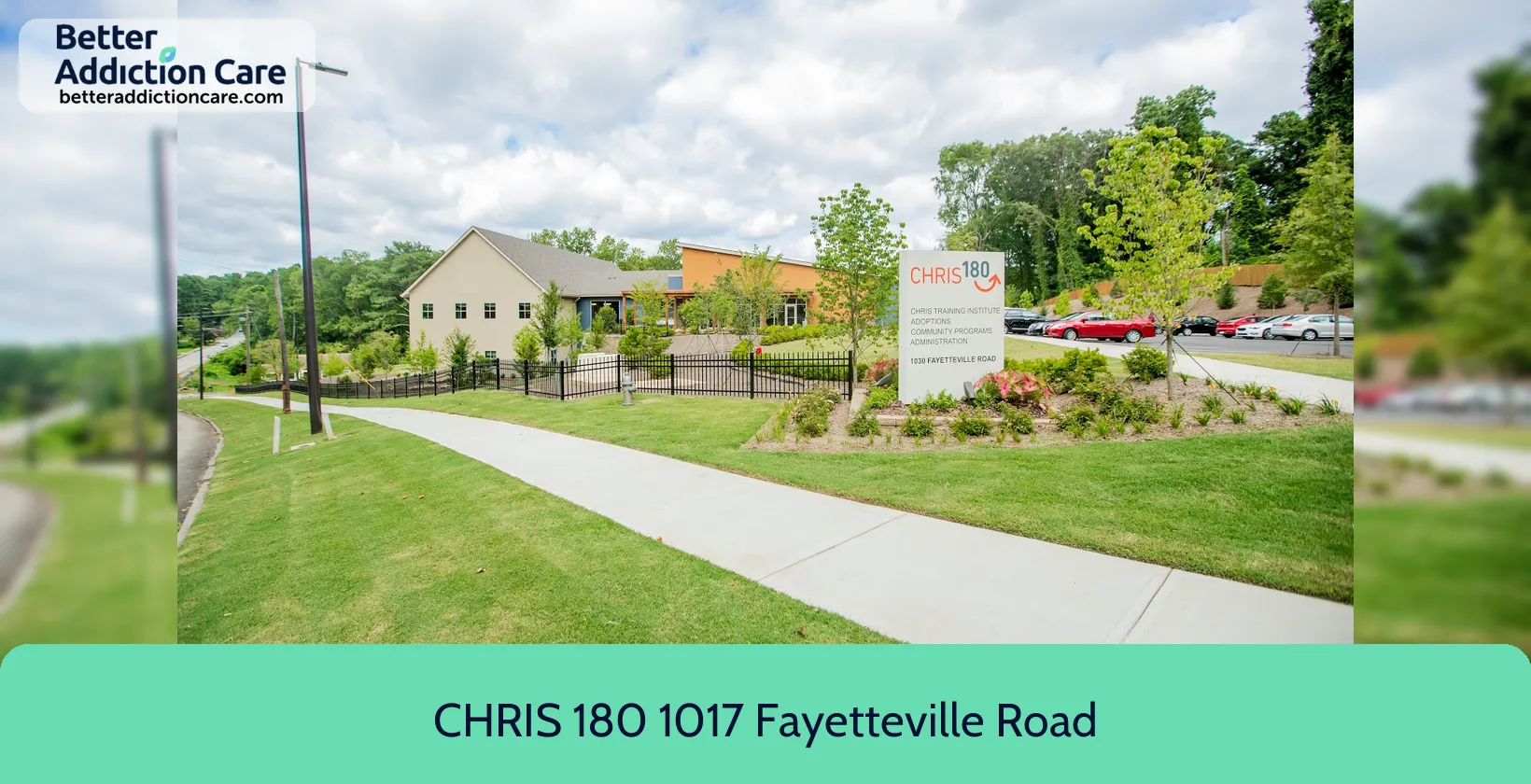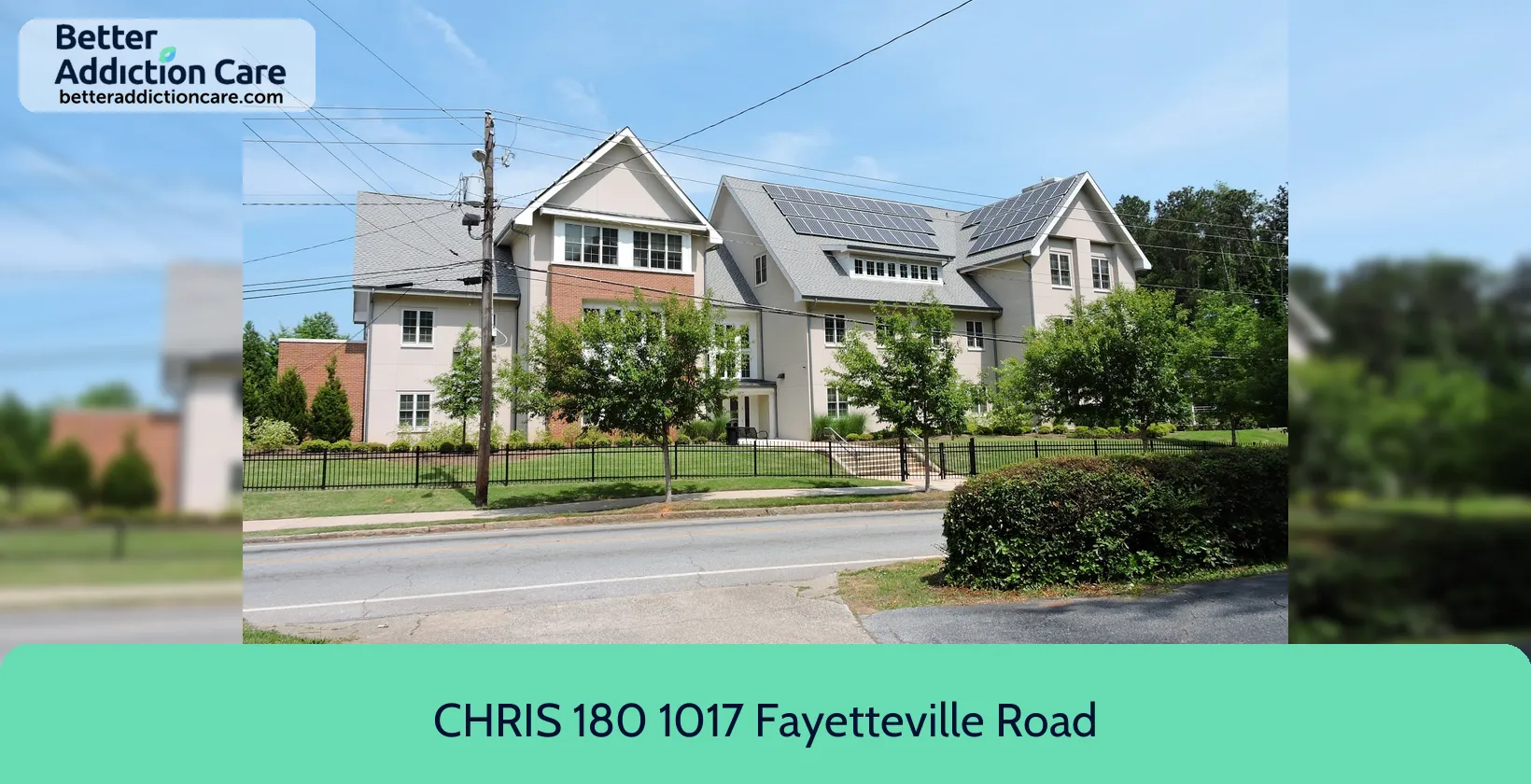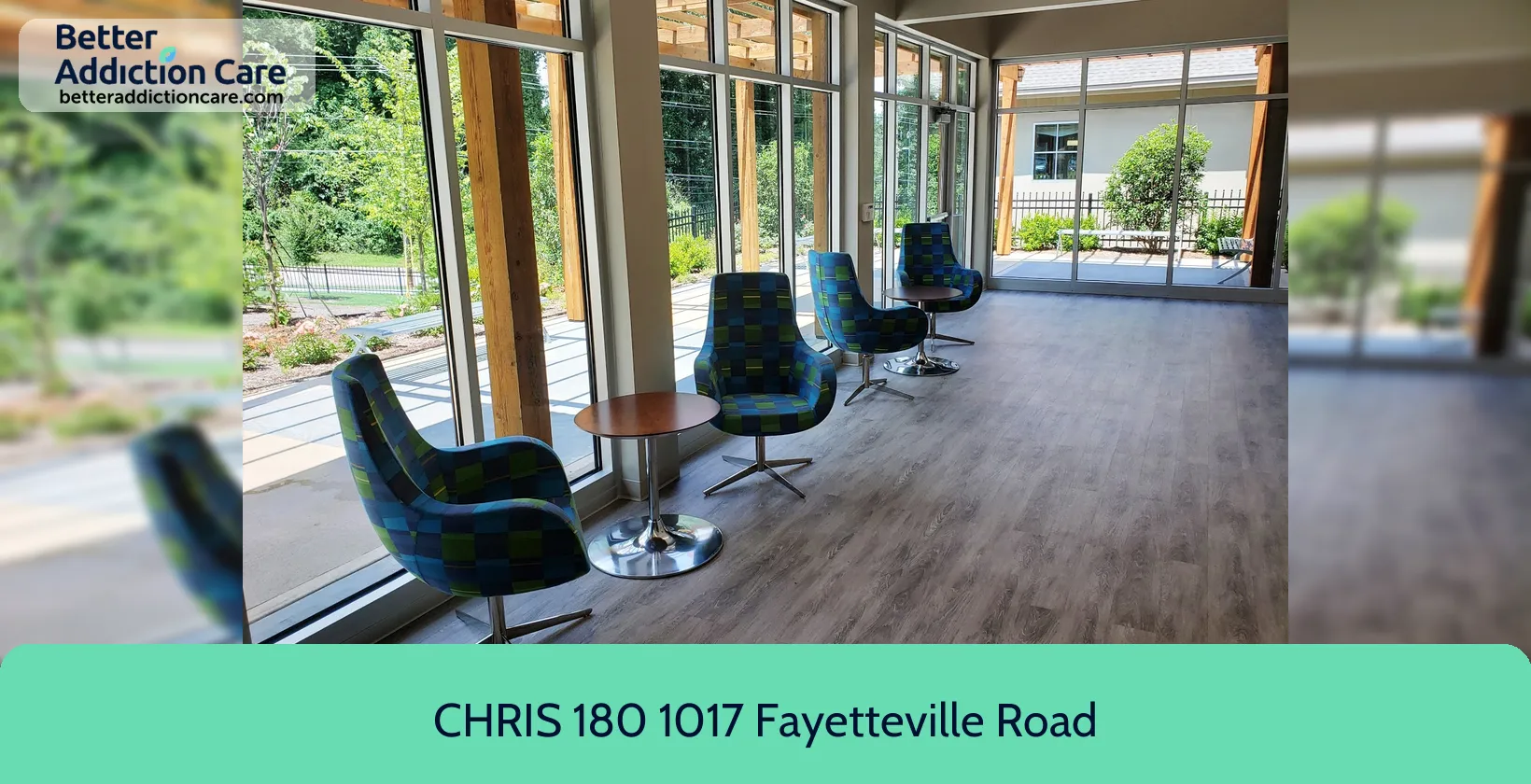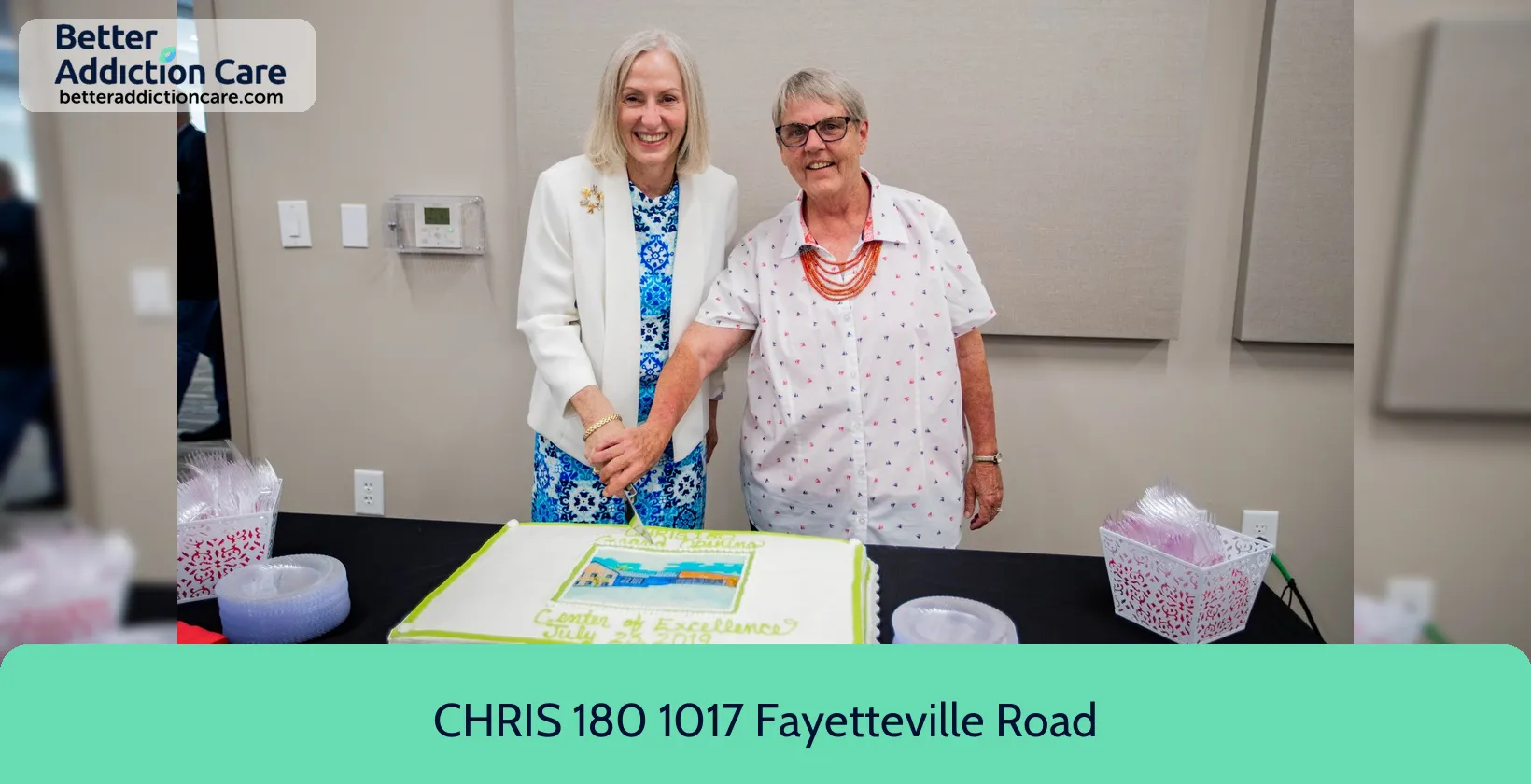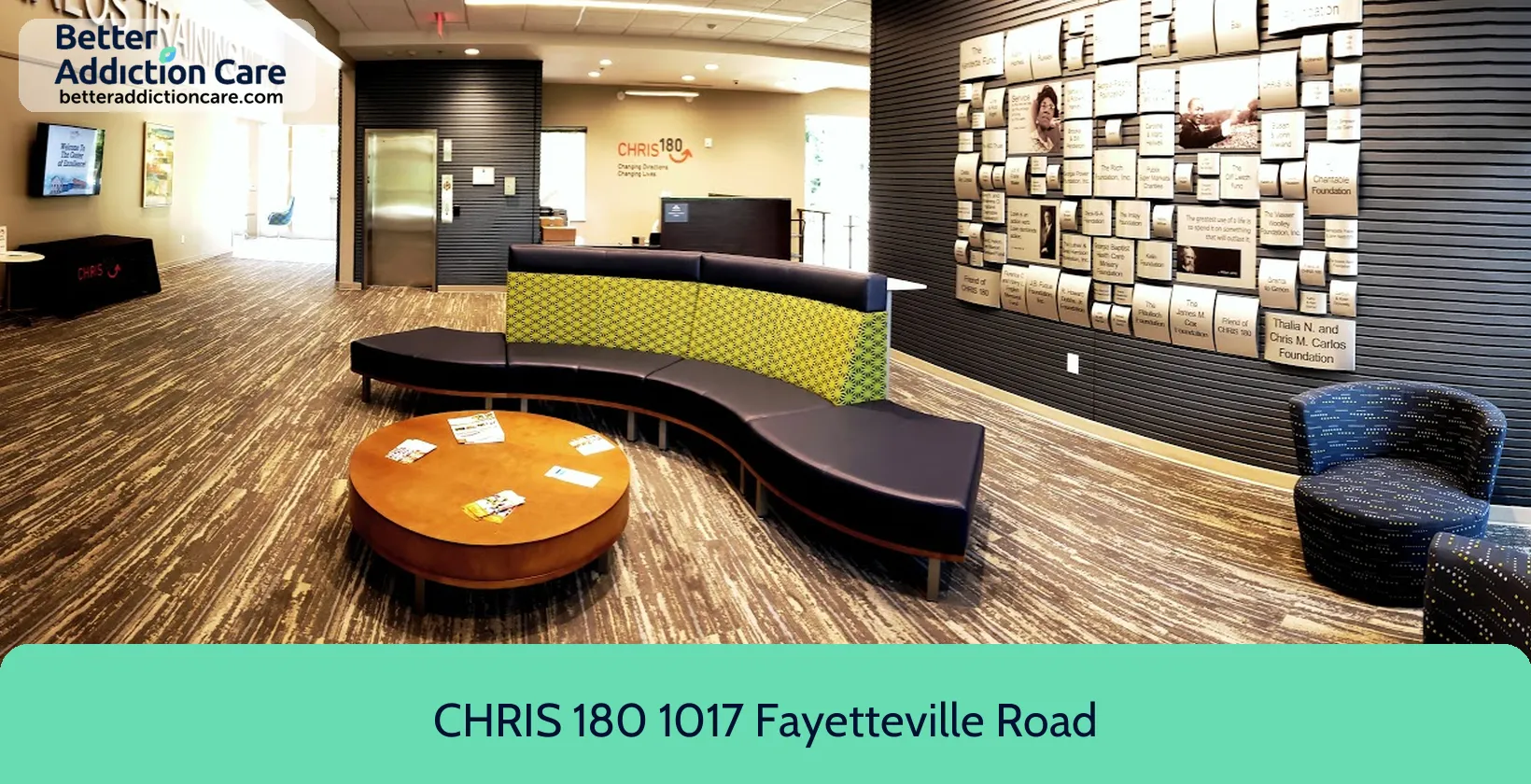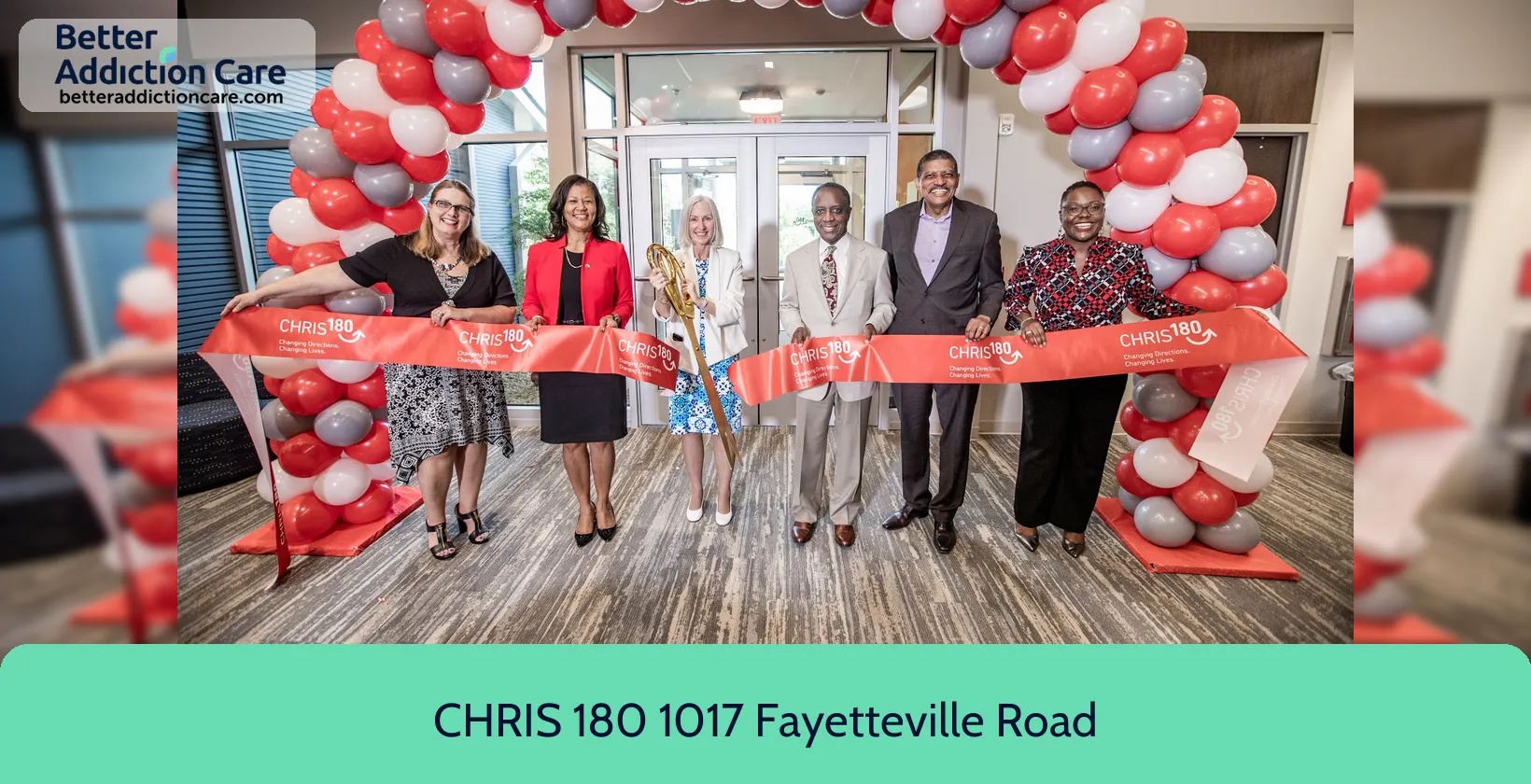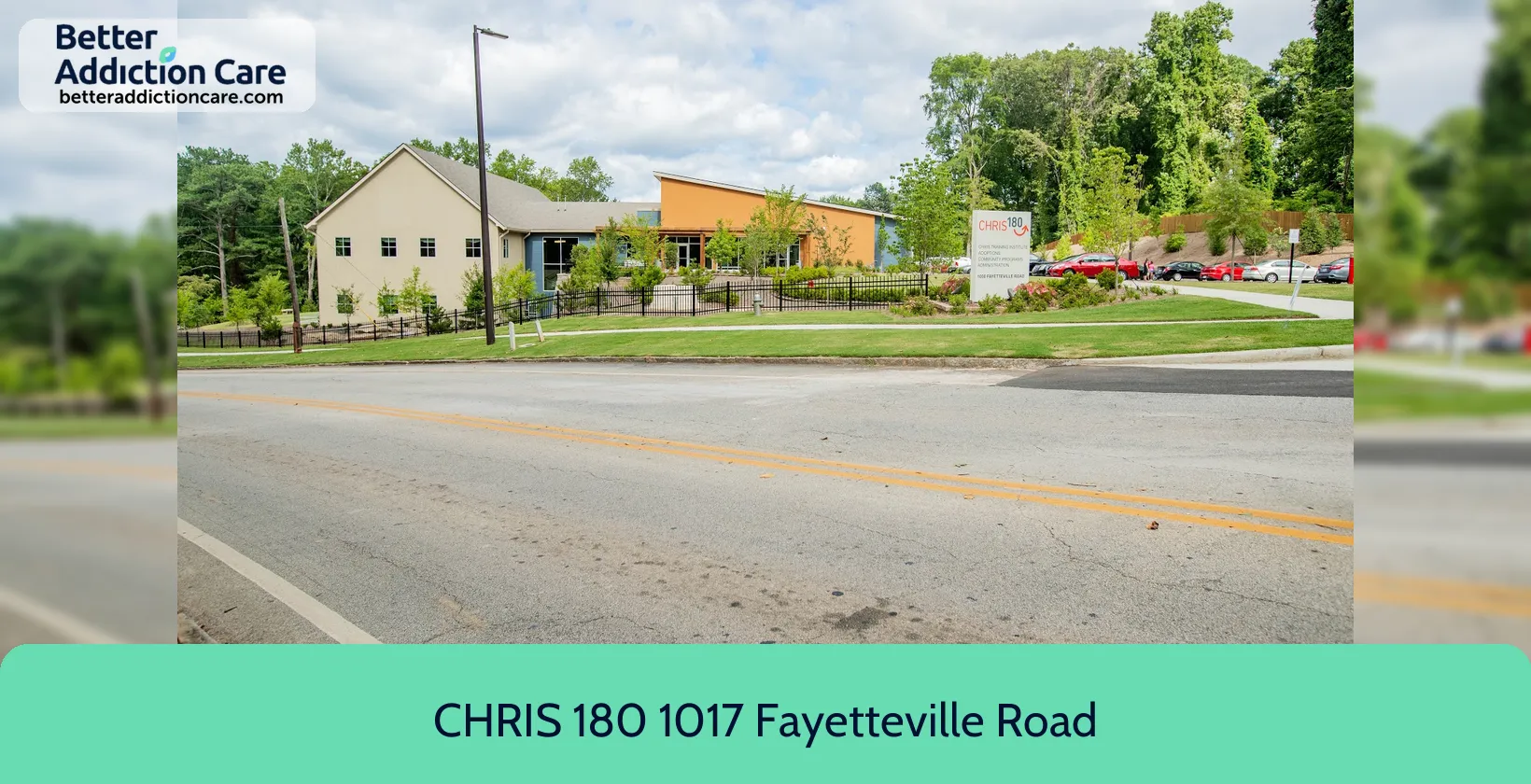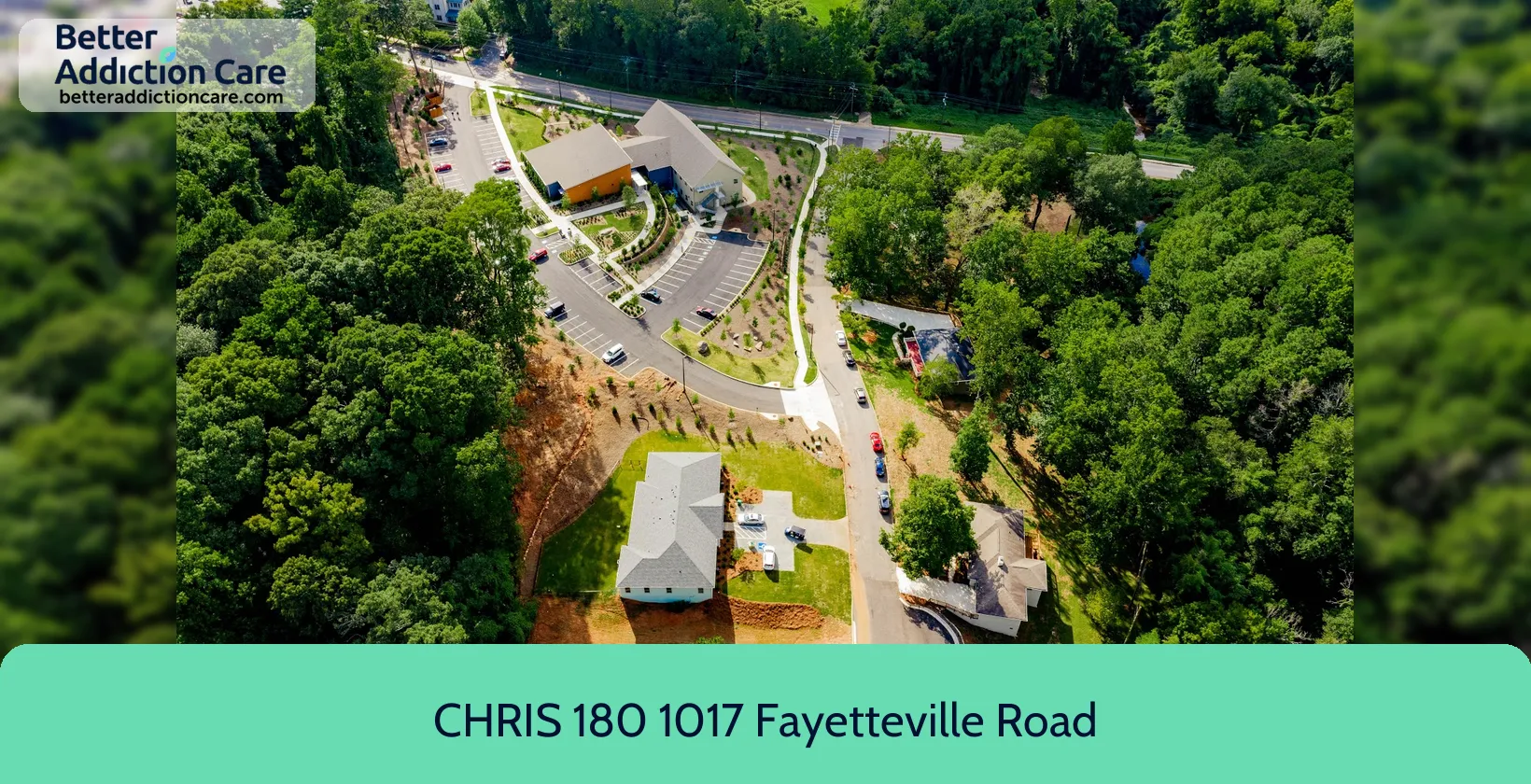CHRIS 180 1017 Fayetteville Road
Overview
CHRIS 180 1017 Fayetteville Road is a substance abuse treatment center for people seeking treatment near DeKalb County. As part of their treatment modalities for recovery, CHRIS 180 1017 Fayetteville Road provides couples/family therapy, group counseling, and cognitive behavioral therapy during treatment. CHRIS 180 1017 Fayetteville Road is located in Atlanta, Georgia, accepting cash or self-payment for treatment.
CHRIS 180 1017 Fayetteville Road at a Glance
Payment Options
- Cash or self-payment
- Medicaid
- Medicare
- State-financed health insurance plan other than Medicaid
- Private health insurance
Assessments
- Comprehensive mental health assessment
- Comprehensive substance use assessment
Age Groups
- Seniors or older adults
- Young adults
- Children/adolescents
- Adults
- Seniors
Ancillary Services
- Case management service
- Court-ordered outpatient treatment
- Family psychoeducation
Highlights About CHRIS 180 1017 Fayetteville Road
6.68/10
With an overall rating of 6.68/10, this facility has the following balanced range of services. Alcohol Rehabilitation: 8.00/10, Treatment Options: 6.73/10, Drug Rehab and Detox: 6.00/10, Insurance and Payments: 6.00/10.-
Alcohol Rehabilitation 8.00
-
Treatment Options 6.73
-
Drug Rehab and Detox 6.00
-
Insurance and Payments 6.00
Accreditations
Federally Qualified Health Center:
Federally Qualified Health Center (FQHC) accreditation is a process of evaluation and recognition by the federal government for community health centers that provide comprehensive and accessible healthcare services to underserved populations. FQHC accreditation is essential for centers to receive federal funding and to ensure that they meet standards for quality, patient-centered care.
Treatment At CHRIS 180 1017 Fayetteville Road
Treatment Conditions
- Mental health treatment
- Substance use treatment
- Co-occurring Disorders
Care Levels
- Outpatient
Treatment Modalities
- Couples/family therapy
- Group counseling
- Cognitive behavioral therapy
- Dialectical behavior therapy
- Activity therapy
Ancillary Services
Additional Services
- Pharmacotherapies administered during treatment
- Laboratory testing
Special Programs
- Clients with co-occurring mental and substance use disorders
- Veterans
- Active duty military
- Members of military families
- Clients with HIV or AIDS
Get Help Now
Common Questions About CHRIS 180 1017 Fayetteville Road
Contact Information
Other Facilities in Atlanta

6.96

6.77

7.23

6.65

6.62

6.96

6.71

6.74
DISCLAIMER: The facility name, logo and brand are the property and registered trademarks of Atlanta Medical Center DT - Behavioral Health Services, and are being used for identification and informational purposes only. Use of these names, logos and brands shall not imply endorsement. BetterAddictionCare.com is not affiliated with or sponsored by Atlanta Medical Center DT - Behavioral Health Services.
